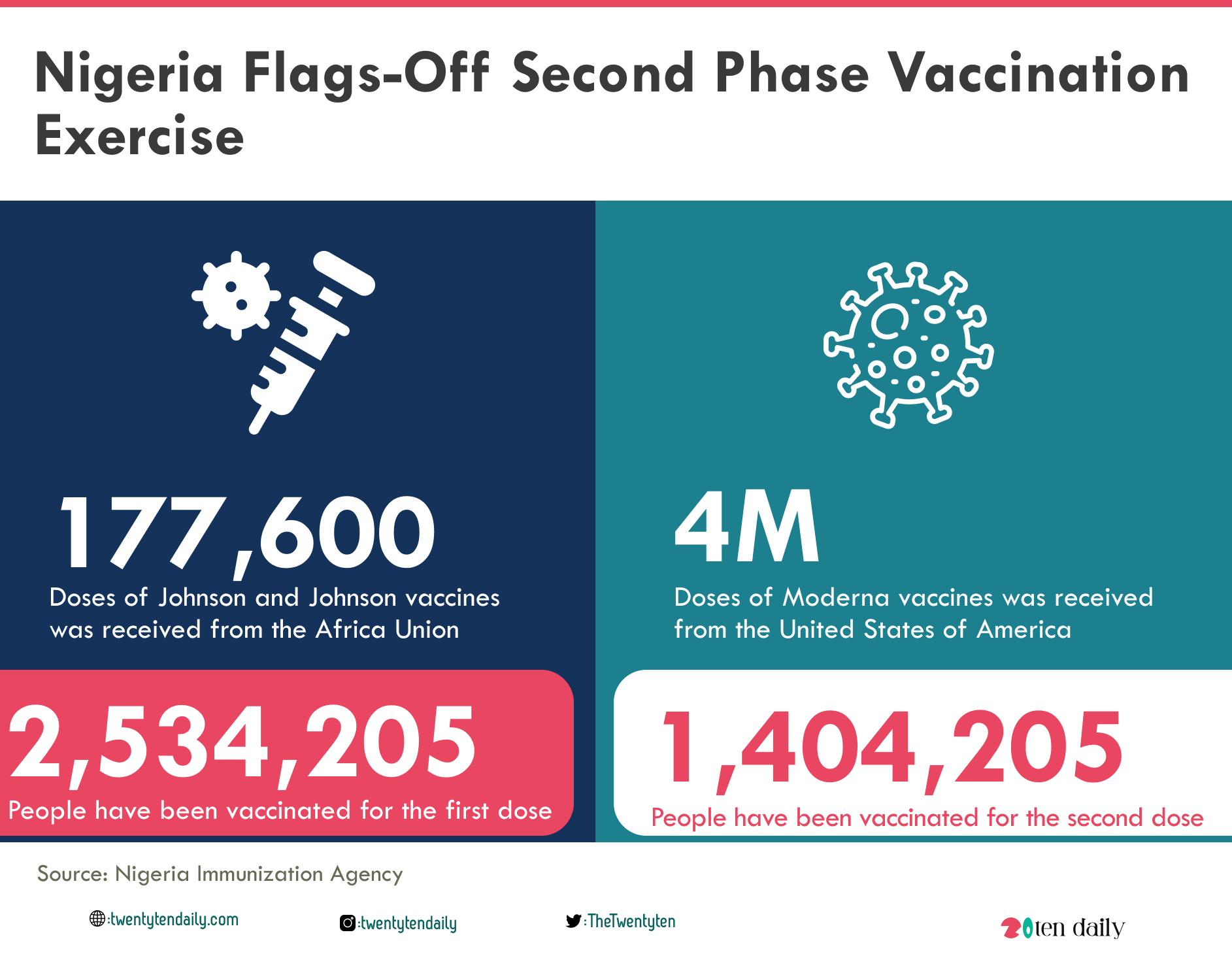Nigeria Flags-off Second Phase Vaccination Exercise
Nigeria has begun the second phase of its vaccination exercise against the Covid-19 virus.
The exercise is coming at a time where the country has begun to record increasing cases of the virus in the last one month.
Speaking at the flag-off ceremony held at the Federal Medical Centre (FMC), Jabi Abuja, the Secretary to the Government of the Federation (SGF), Boss Mustapha, said the second phase would be largely prosecuted with the about 4 million doses of Moderna vaccines, which were recently donated by the government of the United States of America.
Mustapha said the country received another 177,600 doses of Johnson and Johnson (J&J) COVID-19 vaccines from the African Union (AU).
“The arrival of the 4,000,080 doses of Moderna COVID-19 vaccine donated by the Government of the United States and the 177,600 doses of Johnson & Johnson vaccines out of the 29,850,000 doses the Federal Government has purchased through the Africa-Import-Export Bank and the African Union, is highly encouraging and motivating for us at the Presidential Steering Committee,” he said.

Recall that Nigeria had commenced COVID-19 vaccination on March 5, 2021, having received approximately four million doses of the Oxford-AstraZeneca vaccines from COVAX.
The head of Nigeria’s immunisation agency, Faisal Shuaib, had said that this led to the successful vaccination of 3,938,945 eligible persons across 36 states and FCT, representing 98 percent utilisation of the vaccines.
He stressed that 2,534,205 people have been vaccinated for the first dose and 1,404,205 have received their second dose of the vaccine.
To achieve herd immunity against the infection, Nigeria had set an ambitious goal of vaccinating 40 per cent of its over 200 million population before the end of 2021, and 70 per cent by the end of 2022.
The vaccine roll-out was scheduled to be in four phases, starting with health workers, frontline workers, COVID-19 rapid response team amongst others.
The second phase, which commenced on Monday, would capture older adults aged 50 years and above and those with comorbidities aged between 18 and 49 years of age, Mr Shuaib said.



